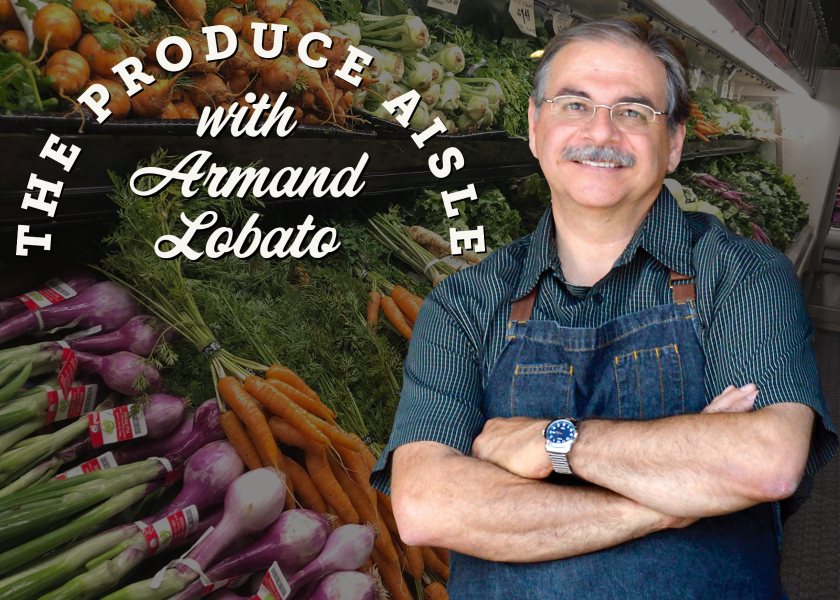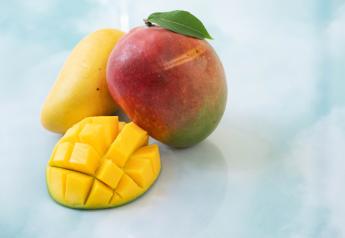Is your fresh produce ‘toolkit’ ready for the job?

As a fan of author Stephen King, I was skimming through part of his 2000 memoir, “On Writing.” King talked about how as a kid he once helped his Uncle Oren fix a screen. Young Stephen finished putting a tool away and was puzzled why they lugged a large toolbox to the job when all he needed was a single screwdriver. His uncle answered, “I didn’t know what else I might find to do once I got here, did I? It’s best to have [all] your tools with you.”
Every task, whether being a writer or doing what it takes to get the job done in the produce aisle, requires bringing all your tools to the job — even if you don’t use them all every time.
That is to say, all the tools to do the job correctly.
As a produce specialist who has trained countless clerks over the years, even department managers, I could more or less evaluate in a short period how productive, or unproductive, they were simply by observing how they pushed out a cart of produce — followed by how many additional trips it took to retrieve something they forgot in order to finish the job. (Considering, as well, that many produce departments are a long hike to the back room, and every extra trip is unproductive, wasted time.)
Every additional trip was almost certain to trigger some secondary distraction that was not part of the initial stocking task. Perhaps it was helping a customer find the capers on a distant aisle. Understandable.
Or the distraction might have been stopping to chat with a friend who worked in the adjacent dairy section; a thought might have crossed their mind on their extra foray; call the warehouse to check on the inbound, expected delivery time; or they might pause to glance at the schedule, snacking on mints in the desk drawer. Some down time is normal, even expected, but it all adds up while stock conditions decline.
Meanwhile, the produce load that was pushed out five or 10 minutes earlier or longer is still there, still unstocked. Productivity momentum that might have been was there no longer.
Related: Read more produce industry insight from Armand Lobato
Or by that point everything is going to take a lot more umph, more hustle to get back on track. This is why in every clerk training, I tried to be the Uncle Oren and patiently, but firmly, tried to engrain the same kind of productivity philosophy. “Take everything you need with you,” I’d say. “Once you’ve figured it’ll take seven cases of apples to properly rotate and stock that display, don’t forget everything else you’ll need.”
In our case the produce “toolkit” would include taking a few empty boxes along to pull the old stock into. An ice or otherwise leakproof container works well to cull any undesirable fruit. To prepare the fixture, include something to clean the display surface: a small whisk broom or portable vacuum, clean rags to wipe down any wet spills, and perhaps some sanitizing surface spray.
Of course, every clerk must carry other basic tools to have at the ready: a sharp trim knife; a safety cutter; heavy tape for fixing … everything; a pen and notepad to jot down what’s needed; and a copy of the store directory that helps the wayward shopper find those capers without pulling you away from the task at hand. You can easily add to the list: label or marking gun, signs for the display, a store phone (as some managers carry) or whatever you anticipate that you’ll need to see the job through.
Clerks aren’t exactly preparing a list of supplies to climb K2, but you get the gist. Preparation is key.
Once produce people become seasoned to accurately figure the quantity of product they need to stock, the exact variety or pack — and have all the tools necessary — that’s when clerks can work steadily and at a good rhythm, while building their speed to keep up the pace and still handling product carefully and safely.
As dear old mom used to advise, “Work hard, and don’t forget to dot your i’s and cross your t’s.”
Armand Lobato works for the Idaho Potato Commission. His 40 years of experience in the produce business span a range of foodservice and retail positions.







